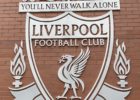International breaks are insufferable. I’ve talked about this before on this site, but the truth is that every time one rolls around I am reminded again about how awful they are. Obviously Liverpool fans spend the whole time hoping that our players will return from them unscathed, but this time there is the added concern over whether Mo Salah or Sadio Mané will be heading to the World Cup in December. Egypt take a 1-0 lead into the second-leg of the qualifier, but either way one of our front three is going to be disappointed. For what it’s worth, I would rather Senegal qualified. It would mean that Mo Salah would get an enforced break in December, meaning that he’d be ready to absolutely destroy the Premier League upon its restart. That being said, if the contract situation forces us to think about selling him then I’d be much less happy about that than I am in theory right now. Either way, it’s another reason for me to hate international football.
Sadio Mane v Mo Salah Senegal 🇸🇳 v Egypt 🇪🇬 another big game tomorrow for the Liverpool brothers before they fly ✈️ back to England. #LFC pic.twitter.com/eg2V8y4Cj8
— supermane10 (@supermanelfc) March 28, 2022
The weeks without club football drag, so it’s fair to say that I’m desperate for the Reds to be back in action at the weekend. Our match against Watford kick-starts a huge month in the season, by the end of which we could either be on our way to unprecedented success or else lamenting the likelihood of only a League Cup win to show for our efforts. Liverpool supporters know how good this team is, but it deserves the recognition from the wider football community that only comes with the biggest silverware. Add a European Cup or a Premier League trophy to our February win and this will be a special season. Add both and it will be an historic one. The manager talks about taking it one game at a time and that is the right approach, but the fans and the players will all be dreaming of what could be. Right now, there is a really positive attitude around Anfield and the AXA Training Centre, which makes the club’s decision to enter the world of NFTs even more baffling.
Is It Just Another Revenue Source?
I like Fenway Sports Group as owners. There is no ownership model currently operating in the Premier League that I would swap for ours. You can see with what has happened to Chelsea just how quickly things can go wrong when you’re owned by a billionaire oligarch, for example, whilst Everton have been so badly run that they deserve to get relegated, quite frankly. As much as I generally like FSG, though, they don’t half make some baffling decisions from time to time. Whether it be trying to raise the ticket prices to such an extent that supporters walked out of Anfield, or trying to furlough staff during the pandemic, the ownership group have made some appalling decisions over the years. Sometimes, they make a daft call that I can at least see the logic of, such as the Super League debacle. Don’t get me wrong, I didn’t approve of it, but I can also see why it is that so many clubs decided that there needed to be an alternative to UEFA.
15 years ago today, in 2007, Hicks and Gillett took ownership, well 98,6% of the ownership shares of #Liverpool. With The Reds where they are today it’d be good to remember exactly how bad things can quickly get in football. #Liverpool #OwnersPurpose #LFC pic.twitter.com/SrJGFycMWD
— Nicky Allt (@NickyAllt) March 27, 2022
The new-look Champions League is proof about how the governing body for sport in Europe has lost its way, yet the Super League wasn’t the answer. From FSG’s point of view, supporters want everything. We want them to keep ticket prices low, buy the best players to compete with Manchester City, pay the biggest wages and also respect the fact that the club belongs to the people. When a new commercial partnership is announced, countless people will be quick to criticise the club for its capitalist stance. It is virtually impossible to please everyone, so is the move into the world of Non-Fungible Tokens nothing more than an attempt to generate a new revenue stream? After all, no one is forcing you to pay money for the tokens that are being sold as part of it. As one Twitter user said to me, it is akin to when corporate boxes arrived at Anfield, taking away seats from ‘normal’ fans but brought in huge amounts of money from people with more money than sense.
It Is An Unregulated Market
Given the manner in which football has changed beyond all recognition since it first began in the 19th century, I’m not sure that there is a lot that football clubs can stand for if they want to succeed at the highest level of the sport. The idea that clubs should belong to the local community is, sadly, fanciful when you consider how global football teams are nowadays. Yet one thing that I think Liverpool Football Club in particular should be doing is looking out for the most vulnerable. As part of that, I’m not convinced that they should be involved in something that has to state as part of it that “NFTs are not regulated instruments in the UK. The value can go up as well as down.” In other words, you might lose lots of money being involved in the world of Non-Fungible Tokens. On top of that, the club is doing it in association with Polygon, which claims to be environmentally sustainable. Polygon is linked to Blockchain, however, which very much isn’t sustainable.
Who the hell’s this? pic.twitter.com/HzUh2BRrgy
— Jimmy Hell (@PlayersTrombone) March 27, 2022
To be clear, we are talking about a completely unregulated market that will see people put their finances at risk. Regardless of Liverpool’s decision to wash their hands of any risk associated with the tokens, they are publicly encouraging people to invest in something that might prove to be completely worthless in next to no time. Does the £8.5 million that the club is reportedly going to get for being involved in NFTs make that worthwhile? Not for me and not for lots of other people. In my personal opinion, Liverpool’s hierarchy should be doing what it can to avoid seeing people fall foul of such things at a time when many are feeling the pinch. Whilst it might be predominantly aimed at those that have more money than sense, there will be many others feeling like they need to find the money to buy an NFT to show their loyalty to the club, perhaps unaware that they won’t know which player’s image they’ll be receiving until they’ve already paid, with what they buy having no intrinsic value.



